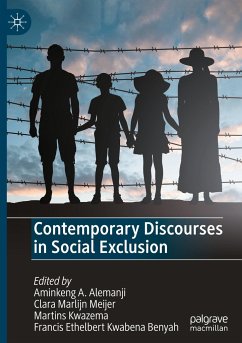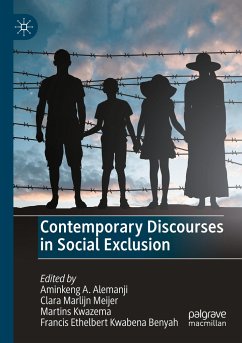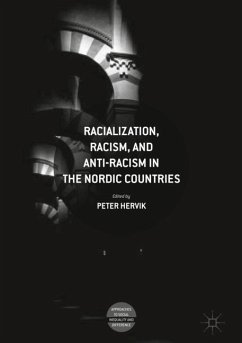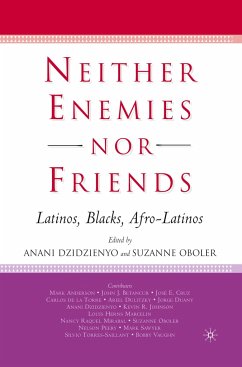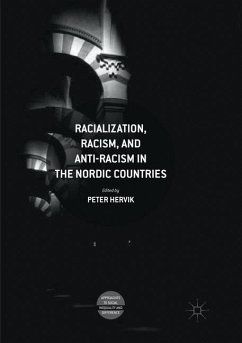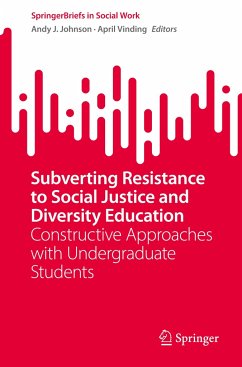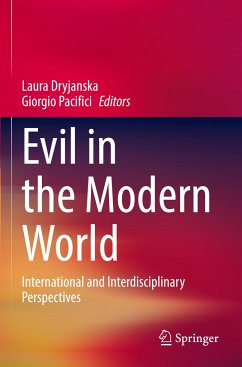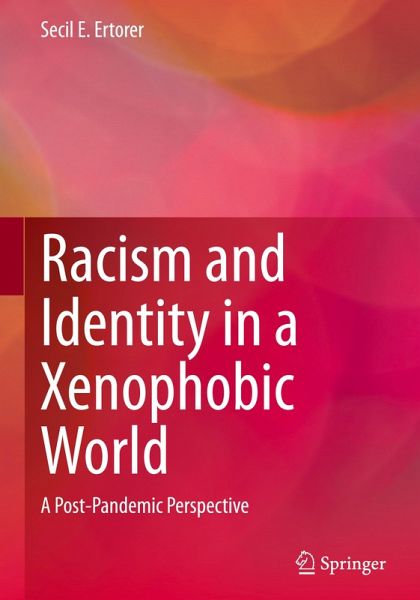
Racism and Identity in a Xenophobic World
A Post-Pandemic Perspective

PAYBACK Punkte
45 °P sammeln!
This book is written against the backdrop of heightened racism and xenophobia in the contemporary world. It elucidates how 'race' operates in racially and ethnically diverse societies and becomes a divisive force.The book offers an interdisciplinary, multi-level model for understanding the roots of racial prejudice and hatred towards the 'other' by incorporating individual, group, institutional, and societal factors. Moreover, it elaborates on the negative effects of racism on the identity and psychological well-being of individuals and proposes strategies to counteract these issues. An empiri...
This book is written against the backdrop of heightened racism and xenophobia in the contemporary world. It elucidates how 'race' operates in racially and ethnically diverse societies and becomes a divisive force.
The book offers an interdisciplinary, multi-level model for understanding the roots of racial prejudice and hatred towards the 'other' by incorporating individual, group, institutional, and societal factors. Moreover, it elaborates on the negative effects of racism on the identity and psychological well-being of individuals and proposes strategies to counteract these issues. An empirical study conducted with Asian American and Pacific Islander communities during the COVID-19 pandemic demonstrates the practical application of the theory. The significant increase in anti-Asian racism from 2020 to 2022 illustrates how easily xenophobia and racism can be triggered during times of rapid change, instability, and uncertainty. While the primary focus is on the USA, the study's findings are relevant to multiracial societies globally.
This book is intended for researchers and students of interdisciplinary social sciences interested in inequality, racism, and othering, as well as those studying the Asian diaspora. It is also of wider interest to anyone, especially practitioners, seeking to understand and dismantle the problem of heightened 'othering' and racism.
The book offers an interdisciplinary, multi-level model for understanding the roots of racial prejudice and hatred towards the 'other' by incorporating individual, group, institutional, and societal factors. Moreover, it elaborates on the negative effects of racism on the identity and psychological well-being of individuals and proposes strategies to counteract these issues. An empirical study conducted with Asian American and Pacific Islander communities during the COVID-19 pandemic demonstrates the practical application of the theory. The significant increase in anti-Asian racism from 2020 to 2022 illustrates how easily xenophobia and racism can be triggered during times of rapid change, instability, and uncertainty. While the primary focus is on the USA, the study's findings are relevant to multiracial societies globally.
This book is intended for researchers and students of interdisciplinary social sciences interested in inequality, racism, and othering, as well as those studying the Asian diaspora. It is also of wider interest to anyone, especially practitioners, seeking to understand and dismantle the problem of heightened 'othering' and racism.




